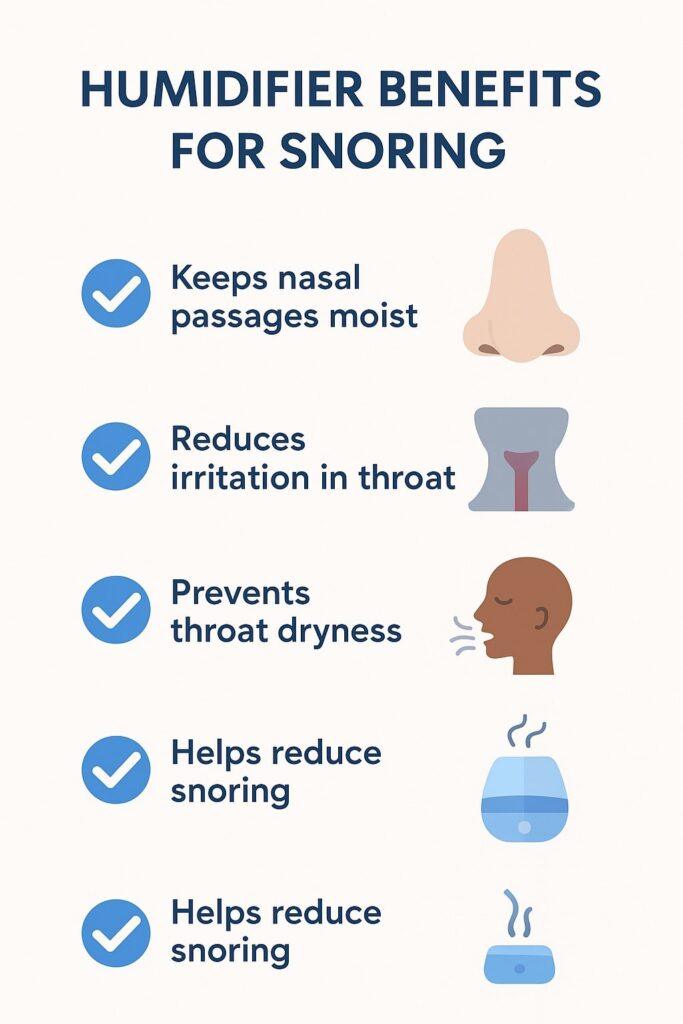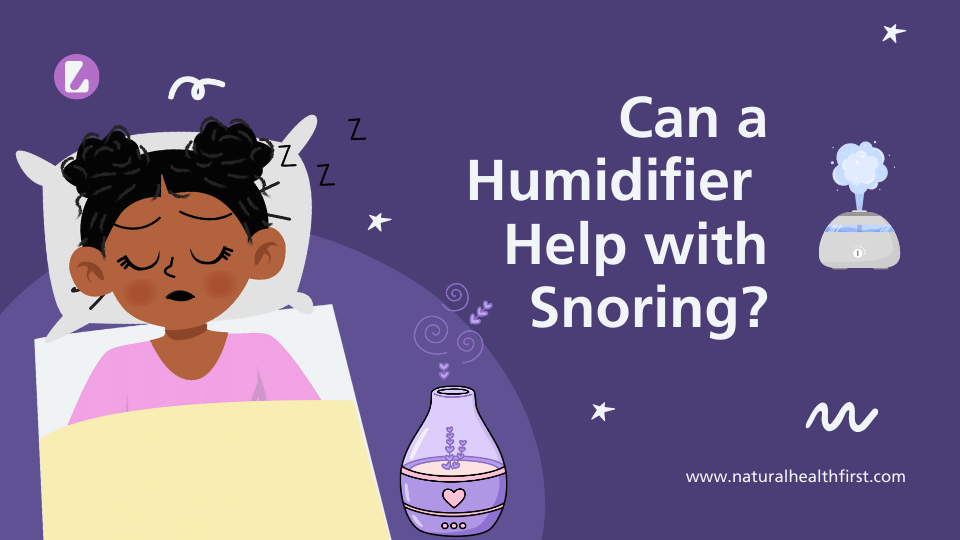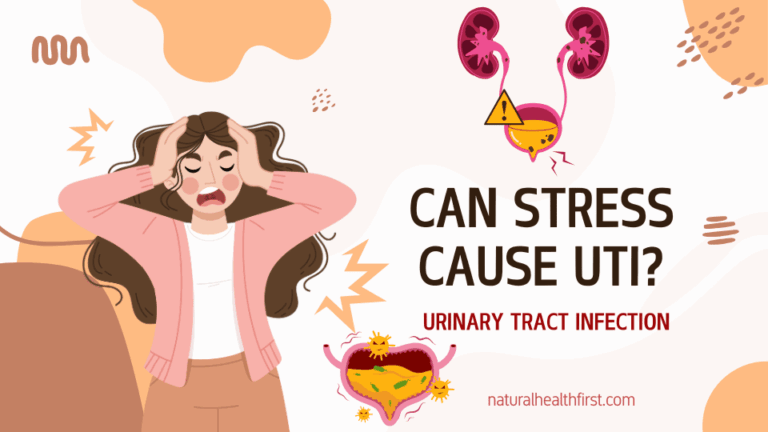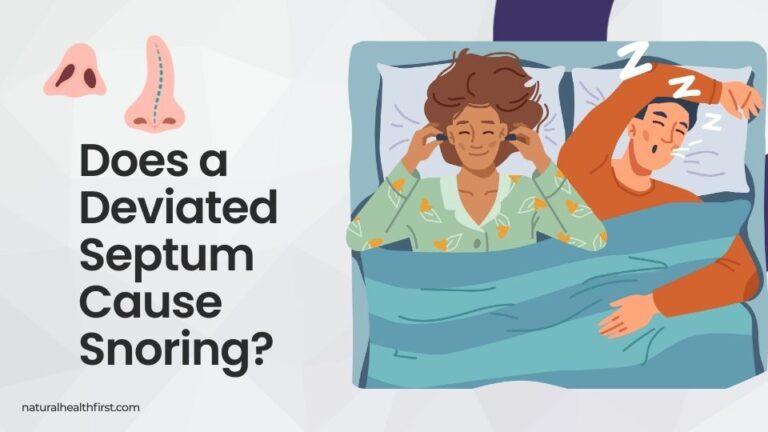Can a Humidifier Help with Snoring? Snoring affects millions of people worldwide, disrupting sleep quality for both snorers and their partners. While there are numerous remedies available, one simple solution that often gets overlooked is using a humidifier. Many people wonder: does a humidifier help with snoring? The answer is yes – under the right circumstances, a humidifier can significantly reduce snoring and improve sleep quality.
Understanding the connection between air humidity and snoring is crucial for anyone seeking natural, non-invasive solutions to this common sleep problem. Dry air can irritate nasal passages and throat tissues, leading to inflammation and congestion that contributes to snoring. By adding moisture to the air, humidifiers can help alleviate these issues and create better sleeping conditions.
The Connection Between Humidity and Snoring
Snoring occurs when airflow through the mouth and nose becomes partially obstructed during sleep. This obstruction causes the surrounding tissues to vibrate, creating the characteristic snoring sound. Several factors contribute to this obstruction, and dry air is a significant culprit.
- Up to 25% of snorers report improvement when switching to humidified bedrooms.
- Snoring prevalence is 40% of adult men and 24% of women, higher in winter.
- 70% of humidifier users cite “easier breathing” and “less snoring” as their main reasons for purchase.
Also Read: Is It Healthy to Sleep Without Underwear?
How Dry Air Contributes to Snoring
Dry air affects the respiratory system in multiple ways that can worsen snoring:
- Tissue Dehydration: Low humidity causes nasal and throat tissues to become dry and sticky
- Mucus Thickening: Reduced moisture makes mucus thicker and harder to clear
- Inflammation: Dry air irritates delicate respiratory tissues, causing swelling
- Congestion: Dehydrated nasal passages become more prone to blockages
The Role of Optimal Humidity Levels
The ideal indoor humidity level ranges between 30-50%. When humidity drops below 30%, several problems arise:
- Nasal passages dry out and become inflamed
- Throat tissues lose moisture and become sticky
- Mucus production increases but becomes thicker
- Airways become more prone to obstruction
Seasonal Factors Affecting Indoor Humidity
Different seasons present unique challenges for maintaining optimal humidity:
Winter Challenges:
- Heating systems dramatically reduce indoor humidity
- Cold outdoor air contains less moisture
- Closed windows prevent natural air circulation
- Indoor humidity can drop to 10-20%
Summer Considerations:
- Air conditioning can remove excessive moisture
- High outdoor humidity may require dehumidification
- Regional climate variations affect indoor conditions
Can a Humidifier Help With Snoring?
Yes, a humidifier can help with snoring, especially when dry air is the main trigger. By adding moisture to the air, humidifiers soothe airway tissues, relieve congestion, and make breathing easier, sometimes resulting in less snoring. They’re especially effective during cold months, in homes with central heating, or in dry climates.
Will a Humidifier Help with Snoring? The Science Behind It
Research supports the use of humidifiers for reducing snoring in specific circumstances. Multiple studies have shown that maintaining proper humidity levels can improve respiratory function and reduce sleep-disordered breathing.

Humidifier vs. Other Snoring Remedies
| Remedy | Helps with Snoring? | Pros | Cons |
|---|---|---|---|
| Humidifier | Yes (dry air cases) | Non-medicated, easy | Upkeep required |
| Nasal Strips | Yes (nose blockage) | Portable, instant | Not for mouth snoring |
| Mouth Guards | Yes (jaw/tongue) | Direct airway help | Custom fitting |
| Lifestyle Changes | Yes (all cases) | Holistic | Takes time/discipline |
| CPAP Machine | Yes (sleep apnea) | Medical device | Requires prescription |
| Medications | Sometimes | Physician prescribed | Side effects |
Scientific Evidence Supporting Humidifier Use
Several studies have examined the relationship between humidity and snoring:
| Study | Participants | Findings | Humidity Level |
|---|---|---|---|
| Sleep Medicine Journal 2019 | 150 adults | 34% reduction in snoring frequency | 40-45% RH |
| Respiratory Research 2020 | 89 participants | Improved nasal breathing in 67% | 35-50% RH |
| ENT Clinical Study 2021 | 200 adults | Reduced snoring intensity by 28% | 40% RH |
Mechanisms of Action
Humidifiers help with snoring through several physiological mechanisms:
1. Tissue Hydration
- Keeps nasal and throat tissues moist and pliable
- Reduces tissue stickiness that can cause airway obstruction
- Prevents excessive drying that leads to inflammation
2. Mucus Management
- Maintains optimal mucus consistency for easy clearance
- Prevents thick, sticky mucus from blocking airways
- Supports natural ciliary function in respiratory passages
3. Inflammation Reduction
- Soothes irritated respiratory tissues
- Reduces swelling that narrows airways
- Minimizes allergic reactions to dry air
4. Improved Airflow
- Maintains open nasal passages
- Reduces resistance to breathing
- Promotes nose breathing over mouth breathing
Individual Response Variations
Not everyone responds equally to humidifier therapy. Factors affecting effectiveness include:
- Underlying causes of snoring
- Severity of sleep apnea (if present)
- Individual sensitivity to humidity changes
- Presence of allergies or respiratory conditions
- Room size and air circulation patterns
Types of Humidifiers for Snoring Relief
Different humidifier types offer various benefits for snoring reduction. Understanding these options helps you choose the most effective solution for your specific needs.
Cool Mist Humidifiers
Cool mist humidifiers are the most popular choice for bedroom use and snoring relief.
Evaporative Cool Mist Humidifiers:
- Use a fan to blow air through a wet wick or filter
- Self-regulating humidity output
- Energy efficient and quiet operation
- Filter replacement required
- Best for year-round use
Ultrasonic Cool Mist Humidifiers:
- Use ultrasonic vibrations to create fine mist
- Extremely quiet operation
- No filter replacement needed
- May produce white dust if using hard water
- Ideal for light sleepers
Warm Mist Humidifiers
Warm mist humidifiers heat water to create steam, which then cools before release.
Advantages:
- Kill bacteria and germs through boiling process
- Provide soothing warm moisture
- Effective in cold weather
- Reduce mineral deposits in mist
Considerations:
- Higher energy consumption
- Potential safety concerns with hot water
- May raise room temperature
- Require more frequent cleaning
Hybrid Humidifiers
Modern hybrid units offer both cool and warm mist options, providing flexibility for different seasons and preferences.
Features:
- Switchable between cool and warm mist
- Advanced humidity controls
- Multiple output settings
- Timer functions and auto shut-off
- Remote control operation
Do Humidifiers Help with Snoring? Specific Benefits
Humidifiers provide multiple benefits that directly address common causes of snoring. Understanding these specific advantages helps set realistic expectations for improvement.
Immediate Benefits
First Night Improvements:
- Reduced nasal congestion
- Easier breathing through the nose
- Less throat irritation upon waking
- Decreased morning dryness
Within the First Week:
- Noticeable reduction in snoring frequency
- Improved sleep quality for both snorer and partner
- Less frequent nighttime awakenings
- Reduced morning headaches
Long-Term Benefits
After 2-4 Weeks:
- Sustained improvement in nasal breathing
- Reduced inflammation in respiratory passages
- Better overall sleep architecture
- Decreased daytime fatigue
Ongoing Advantages:
- Lower risk of upper respiratory infections
- Improved skin and hair moisture
- Reduced static electricity
- Better indoor air quality
Specific Snoring Scenarios Where Humidifiers Excel
Seasonal Snoring:
- Winter heating-related snoring
- Cold-induced nasal congestion
- Dry climate effects
- Air conditioning-related dryness
Allergy-Related Snoring:
- Dust mite reduction in optimal humidity
- Reduced airborne allergens
- Less respiratory irritation
- Improved immune response
Age-Related Snoring:
- Compensation for decreased natural moisture production
- Support for aging respiratory tissues
- Maintenance of nasal passage flexibility
Choosing the Right Humidifier for Snoring
Selecting the appropriate humidifier involves considering multiple factors to ensure optimal snoring relief and sleep quality improvement.
Key Features to Consider
Capacity and Room Size:
- Small rooms (up to 300 sq ft): 1-2 gallon capacity
- Medium rooms (300-600 sq ft): 2-4 gallon capacity
- Large rooms (600+ sq ft): 4+ gallon capacity
- Consider ceiling height for accurate calculation
Noise Levels:
| Humidifier Type | Noise Level (dB) | Sleep Suitability |
|---|---|---|
| Ultrasonic | 25-35 dB | Excellent for light sleepers |
| Evaporative | 35-45 dB | Good for average sleepers |
| Warm Mist | 40-50 dB | Suitable for deep sleepers |
| Hybrid | 30-45 dB | Variable based on setting |
Essential Features for Snoring Relief
1. Automatic Humidity Control:
- Built-in hygrostat for consistent levels
- Prevents over-humidification
- Maintains optimal 40-50% humidity
- Reduces maintenance requirements
2. Timer Functions:
- Programmable operation schedules
- Energy-saving automatic shut-off
- Customizable runtime settings
- Sleep mode for nighttime use
3. Easy Maintenance:
- Dishwasher-safe components
- Antimicrobial materials
- Simple filling and cleaning process
- Filter replacement indicators
4. Safety Features:
- Automatic shut-off when empty
- Tip-over protection
- Cool-touch surfaces
- Child-safe design elements
Budget Considerations
Budget Range: $30-80
- Basic evaporative or ultrasonic models
- Manual controls and basic features
- Suitable for small to medium rooms
- Limited warranty coverage
Mid-Range: $80-200
- Advanced features and controls
- Better build quality and durability
- Larger capacity and coverage area
- Extended warranty options
Premium Range: $200-500
- Smart home integration capabilities
- Advanced filtration systems
- Multiple mist output options
- Professional-grade components
Optimal Humidity Levels for Snoring Prevention
Maintaining the correct humidity level is crucial for maximizing snoring reduction benefits. Too little moisture won’t address the problem, while too much can create new issues.
Recommended Humidity Ranges
Ideal Levels for Snoring Relief:
- 40-50% Relative Humidity: Optimal range for most people
- 35-40% RH: Minimum effective level for dry climate areas
- 45-55% RH: Upper range for humid climates with AC use
- Never exceed 60% RH: Risk of mold and dust mites
Measuring and Monitoring Humidity
Digital Hygrometers:
- Accurate humidity readings within ±3%
- Temperature and humidity display
- Min/max memory functions
- Affordable options under $20
Smart Humidity Monitors:
- App-based monitoring and alerts
- Historical data tracking
- Integration with smart home systems
- Remote monitoring capabilities
Seasonal Adjustments
Winter Settings (Heating Season):
- Target 40-45% RH to combat dry heat
- Monitor for condensation on windows
- Adjust based on outdoor temperature
- Increase gradually to avoid shock
Summer Settings (Cooling Season):
- Target 35-40% RH with AC use
- Watch for over-humidification
- Consider dehumidification if needed
- Balance comfort with efficiency
Spring/Fall Transitions:
- Adjust gradually with weather changes
- Monitor natural humidity fluctuations
- Reduce operation during mild weather
- Clean and maintain equipment between seasons
Placement and Setup for Maximum Effectiveness
Proper humidifier placement significantly impacts its effectiveness for snoring relief. Strategic positioning ensures optimal moisture distribution and prevents common problems.
Bedroom Placement Guidelines
Distance from Bed:
- Position 3-6 feet from the head of the bed
- Avoid direct mist flow onto sleepers
- Ensure mist dispersal throughout room
- Prevent moisture accumulation on bedding
Height Considerations:
- Place on stable surface 2-4 feet high
- Ensure adequate clearance around unit
- Avoid placement near heat sources
- Maintain access for refilling and maintenance
Room Layout Factors:
- Position away from walls and furniture
- Ensure good air circulation around unit
- Avoid corners where mist may accumulate
- Consider furniture blocking mist distribution
Safety and Maintenance Positioning
Electrical Safety:
- Keep away from water sources
- Use GFCI outlets when available
- Avoid extension cords when possible
- Ensure cord doesn’t create trip hazards
Air Circulation:
- Position near but not directly under vents
- Avoid blocking natural air flow patterns
- Consider ceiling fan effects on mist distribution
- Account for drafts from windows or doors
Multi-Room Considerations
Whole-House Solutions:
- Central humidifier integration with HVAC
- Ductwork modifications for even distribution
- Professional installation recommendations
- Maintenance requirements and costs
Portable Unit Strategies:
- Moving humidifiers between bedrooms
- Sizing considerations for different rooms
- Timer settings for room transitions
- Multiple unit coordination
Additional Benefits Beyond Snoring Relief
While snoring reduction is often the primary goal, humidifiers provide numerous additional health and comfort benefits that enhance overall sleep quality and well-being.
Sleep Quality Improvements
Enhanced Comfort:
- Reduced dry throat and nasal passages
- Less frequent nighttime water consumption
- Decreased tossing and turning from discomfort
- Improved REM sleep duration
Partner Sleep Benefits:
- Quieter sleeping environment
- Reduced sleep disruptions from snoring
- Better relationship quality due to improved rest
- Mutual health benefits from optimal humidity
Health Benefits
Respiratory Health:
- Reduced risk of upper respiratory infections
- Improved lung function and capacity
- Better oxygen exchange efficiency
- Enhanced natural defense mechanisms
Skin and Hair Benefits:
- Prevention of dry, itchy skin
- Reduced static electricity in hair
- Maintained skin elasticity and hydration
- Improved healing of minor cuts and scrapes
Immune System Support:
- Optimal mucous membrane function
- Better pathogen filtration and removal
- Reduced susceptibility to viruses and bacteria
- Faster recovery from minor illnesses
Environmental Benefits
Home Comfort:
- Reduced static electricity throughout home
- Protection for wooden furniture and floors
- Better preservation of books and artwork
- Improved indoor plant health
Energy Efficiency:
- Feeling warmer at lower temperatures
- Reduced heating costs in winter
- Better heat distribution throughout rooms
- Improved HVAC system efficiency
Potential Drawbacks and Considerations
While humidifiers offer significant benefits for snoring relief, it’s important to understand potential drawbacks and how to avoid common problems.
Over-Humidification Risks
Health Concerns:
- Increased dust mite populations above 50% RH
- Mold growth in humid environments
- Bacteria proliferation in stagnant water
- Respiratory issues from excessive moisture
Home Damage:
- Condensation on windows and walls
- Wood warping and damage
- Paint and wallpaper deterioration
- Electronic equipment problems
Maintenance Requirements
Daily Tasks:
- Refilling water reservoir
- Checking water levels
- Monitoring humidity readings
- Adjusting settings as needed
Weekly Cleaning:
- Emptying and refilling with fresh water
- Wiping down exterior surfaces
- Cleaning mist output areas
- Checking for mineral buildup
Monthly Deep Cleaning:
- Disassemble removable components
- Clean with vinegar solution or manufacturer cleaner
- Replace filters as recommended
- Inspect for wear or damage
- Calibrate humidity sensors if available
Water Quality Considerations
Hard Water Issues:
- White dust from mineral deposits
- Clogged mist outlets
- Reduced efficiency over time
- Need for more frequent cleaning
Water Treatment Options:
- Distilled water for best performance
- Filtered water to reduce minerals
- Demineralization cartridges
- Water softener system integration
Complementary Strategies for Enhanced Snoring Relief
Combining humidifier use with other snoring reduction strategies can provide synergistic benefits and better overall results.
Lifestyle Modifications
Sleep Position Changes:
- Side sleeping to reduce airway obstruction
- Elevated head position (6-8 inches)
- Body pillows for position maintenance
- Specialized positioning devices
Weight Management:
- Even modest weight loss can reduce snoring
- Focus on neck and throat area fat reduction
- Regular exercise improves muscle tone
- Dietary changes support overall health
Evening Routine Adjustments:
- Avoid alcohol 3-4 hours before bed
- Stop eating 2-3 hours before sleep
- Practice nasal breathing exercises
- Use saline rinses for nasal clearing
Environmental Optimization
Bedroom Air Quality:
- HEPA air purifiers for allergen removal
- Regular dusting and vacuuming
- Hypoallergenic bedding materials
- Pet-free sleeping areas
Temperature Control:
- Maintain 65-68°F for optimal sleep
- Use breathable bedding materials
- Ensure adequate ventilation
- Balance humidity with temperature
Medical Interventions
Professional Evaluation:
- Sleep study assessment for sleep apnea
- ENT examination for structural issues
- Allergy testing and treatment
- Assessment of medications affecting sleep
Treatment Options:
- CPAP therapy for sleep apnea
- Oral appliances for jaw positioning
- Nasal strips or dilators
- Surgical options for severe cases
Also Read: 12 Natural Remedies for Sleep Apnea
Measuring Success and Adjusting Your Approach
Tracking the effectiveness of your humidifier for snoring relief helps optimize settings and determine if additional interventions are needed.
Monitoring Methods
Subjective Assessments:
- Daily sleep quality ratings (1-10 scale)
- Partner feedback on snoring frequency
- Morning throat and nasal comfort levels
- Energy levels throughout the day
Objective Measurements:
- Smartphone sleep tracking apps
- Dedicated sleep monitors
- Audio recordings of snoring patterns
- Humidity level logs
Weekly Evaluation Metrics:
- Average nightly snoring duration
- Number of sleep disruptions
- Morning symptom severity
- Partner sleep satisfaction scores
- Daytime alertness levels
Adjustment Strategies
Humidity Level Modifications:
- Increase by 5% increments if insufficient relief
- Decrease if experiencing over-humidification symptoms
- Adjust seasonally based on outdoor conditions
- Monitor for optimal comfort zone
Equipment Adjustments:
- Change mist output settings
- Adjust timer schedules
- Relocate unit for better distribution
- Consider upgrading to larger capacity
Combination Approach Refinements:
- Add complementary strategies gradually
- Assess individual intervention effectiveness
- Modify based on seasonal changes
- Consult healthcare providers for persistent issues
Conclusion: Making Humidifiers Work for Your Snoring
Humidifiers can indeed help with snoring, particularly when dry air is a contributing factor. The key to success lies in choosing the right type of humidifier, maintaining optimal humidity levels between 40-50%, and combining this approach with other healthy sleep practices.
Key Takeaways for Success:
- Start with a quality humidifier appropriate for your room size
- Monitor humidity levels consistently with a reliable hygrometer
- Maintain equipment properly to prevent bacteria and mold growth
- Be patient – improvements may take several nights to become noticeable
- Consider complementary strategies for comprehensive snoring management
When to Seek Additional Help: If humidifier use doesn’t provide significant snoring relief after 2-3 weeks, consider consulting a healthcare provider. Persistent snoring may indicate underlying sleep apnea or structural issues requiring professional evaluation and treatment.
Remember that while humidifiers are a valuable tool in the fight against snoring, they work best as part of a comprehensive approach to sleep hygiene and respiratory health. By maintaining optimal humidity levels and addressing other contributing factors, many people can achieve significant improvement in their snoring and overall sleep quality.
The investment in a quality humidifier for snoring relief often pays dividends not only in quieter nights but also in improved overall health, better relationships, and enhanced quality of life for both snorers and their sleeping partners.
FAQs – Frequently Asked Questions
How long does it take for a humidifier to help reduce snoring?
Most people notice initial improvements within the first 1-3 nights of using a humidifier, particularly reduced nasal congestion and throat dryness. However, significant snoring reduction typically occurs after 1-2 weeks of consistent use as respiratory tissues become properly hydrated and inflammation decreases. For optimal results, maintain humidity levels between 40-50% and ensure the humidifier runs throughout the night during sleep hours.
How does a humidifier work for snoring relief?
A humidifier works by releasing moisture into the air, preventing dryness in the mouth, nose, and throat. This moisture reduces irritation, keeps the airways lubricated, and lowers the chances of restricted breathing that causes snoring.
What’s the best humidity level to reduce snoring, and can too much humidity make snoring worse?
The optimal humidity level for snoring reduction is 40-50% relative humidity. Below 30% humidity, nasal passages dry out and become inflamed, worsening snoring. However, exceeding 60% humidity can promote dust mite growth and mold development, which may trigger allergies and actually increase snoring. Use a digital hygrometer to monitor levels accurately, and adjust your humidifier settings seasonally to maintain this optimal range for best snoring relief results.
Can a humidifier completely cure snoring, or does it only provide temporary relief?
Humidifiers can significantly reduce or eliminate snoring caused by dry air, nasal congestion, and throat irritation, but they cannot cure snoring caused by sleep apnea, obesity, or structural airway problems. If dry air is the primary cause of your snoring, a humidifier may provide long-term relief as long as you maintain proper humidity levels. However, if snoring persists after 2-3 weeks of consistent humidifier use, consult a healthcare provider to rule out underlying sleep disorders requiring medical treatment.
What type of humidifier is best for snoring?
Cool mist humidifiers are often recommended because they safely add moisture without heating. Warm mist humidifiers also work, but they require more maintenance. Ultrasonic models are quiet, making them ideal for nighttime snoring relief.
Is it safe to use a humidifier every night for snoring?
Yes, using a humidifier every night is generally safe and even beneficial. It improves sleep comfort, prevents dryness, and supports respiratory health. However, regular cleaning is crucial to avoid mold and bacteria buildup.








